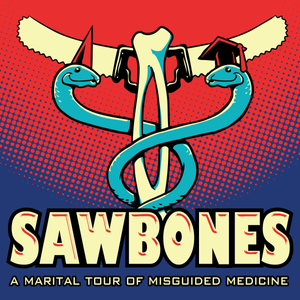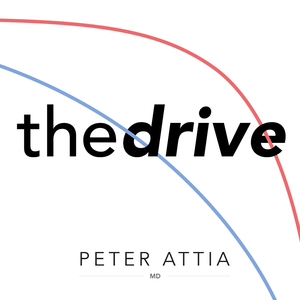
16 i Latine—Wait, or is it supposed to be Hispanic, Latino, Latinx or Chicano? (Dr. Jerry Garcia, Daniel Padron)
03/30/23 • 45 min
Dr. Jerry Garcia is a professor at Texas Christian University with expertise in teaching Chicano/Latino Studies, US History, and Mexican History. He was previously the Vice President for Educational Programs at Sea Mar Museum, where he curated the new Sea Mar Museum of Chicano/a/Latino/a Culture in Seattle, WA. His deep commitment to promoting education, diversity, and inclusion has made a positive impact on the educational landscape and beyond.
Daniel Joaquin Padron is a Community Health Educator in Spokane, WA. As a first-generation college graduate with a degree in Public Health, he is passionate about promoting health equity and social justice for underserved communities. He has experience working with low socioeconomic status populations and resettling refugees.
After listening to this episode you will be able to:
- Explain the experience of growing up in a small town and the challenges of navigating identity
- Describe the historical roots of the terms Hispanic, Latino, Latinx, and Chicano and how they evolved over time
- List the different factors that contribute to the use of certain terminology, including politics, culture, and personal preference
- Review how the terms reflect self-determination and autonomy in defining one's own identity
- Explore the intersectionality of identity and the importance of recognizing and respecting diverse experiences within the Hispanic/Latinx community
- Discuss the implications of using certain terminology in society and the importance of staying informed and culturally sensitive.
Next Step:
Visit our website, Healthcare for Humans, and join our community to enjoy exclusive benefits at https://www.healthcareforhumans.org/support/.
- Support Our Mission: Non-clinicians, explore exclusive content and contribute to our collective journey.
- Be an Active Participant: Go beyond listening. Shape our narrative by co-creating episodes with us.
- Be part of our community by visiting https://www.healthcareforhumans.org/support/. Follow us on Instagram @healthcareforhumanspodcast
Dr. Jerry Garcia is a professor at Texas Christian University with expertise in teaching Chicano/Latino Studies, US History, and Mexican History. He was previously the Vice President for Educational Programs at Sea Mar Museum, where he curated the new Sea Mar Museum of Chicano/a/Latino/a Culture in Seattle, WA. His deep commitment to promoting education, diversity, and inclusion has made a positive impact on the educational landscape and beyond.
Daniel Joaquin Padron is a Community Health Educator in Spokane, WA. As a first-generation college graduate with a degree in Public Health, he is passionate about promoting health equity and social justice for underserved communities. He has experience working with low socioeconomic status populations and resettling refugees.
After listening to this episode you will be able to:
- Explain the experience of growing up in a small town and the challenges of navigating identity
- Describe the historical roots of the terms Hispanic, Latino, Latinx, and Chicano and how they evolved over time
- List the different factors that contribute to the use of certain terminology, including politics, culture, and personal preference
- Review how the terms reflect self-determination and autonomy in defining one's own identity
- Explore the intersectionality of identity and the importance of recognizing and respecting diverse experiences within the Hispanic/Latinx community
- Discuss the implications of using certain terminology in society and the importance of staying informed and culturally sensitive.
Next Step:
Visit our website, Healthcare for Humans, and join our community to enjoy exclusive benefits at https://www.healthcareforhumans.org/support/.
- Support Our Mission: Non-clinicians, explore exclusive content and contribute to our collective journey.
- Be an Active Participant: Go beyond listening. Shape our narrative by co-creating episodes with us.
- Be part of our community by visiting https://www.healthcareforhumans.org/support/. Follow us on Instagram @healthcareforhumanspodcast
Previous Episode

15 I The Model Minority Myth—Be small, Don't take up so much space, Don't cause trouble (Dr. Denise Yu)
Next Step:
Visit our website, Healthcare for Humans, and join our community to enjoy exclusive benefits at https://www.healthcareforhumans.org/support/
- Earn CME Credits: Clinicians, enhance your learning by earning valuable continuing education credits while listening. Utilize your CME funds to join our community.
- Support Our Mission: Non-clinicians, explore exclusive content and contribute to our collective journey.
- Be an Active Participant: Go beyond listening. Shape our narrative by co-creating episodes with us.
- Be part of our community by visiting https://www.healthcareforhumans.org/support/. Follow us on Instagram @healthcareforhumanspodcast
Born and raised predominantly in San Diego, California, Dr. Denise Yu completed undergraduate and medical degrees in her hometown. After graduating, she was eager to start her career in family medicine and found her home in the Pacific Northwest after moving to Seattle.
Her passion for medicine stems from a personal experience as a child when she fell ill and was hospitalized. Unfortunately, the medical professionals failed to communicate with her parents in a language they could understand, leaving them feeling lost and confused. This experience instilled in Dr. Denise Yu the importance of clear and effective communication in healthcare, and now she is dedicated to providing her patients and their families with the information they need to make informed healthcare decisions.
After listening to this, you will be able to
- Explain the origins and historical context of the model minority myth
- Describe the problematic components of the model minority myth, including the ways in which it perpetuates harmful stereotypes and erases the experiences of marginalized Asian American communities
- List the impacts of the model minority myth, including its role in upholding systems of oppression and hindering efforts toward achieving equity and justice for Asian Americans
- Understand how the model minority myth has affected the mental health of individuals such as Dr. Denise Yu, who have experienced the pressure to conform to the myth's expectations, and how this has led to feelings of anxiety, depression, and disconnection from their cultural identity
- Review how the perpetuation of the model minority myth can affect the health of Asian American patients, including how it can impact their access to care, their perceptions of their own health, and the quality of care they receive.
Next Step:
Visit our website, Healthcare for Humans, and join our community to enjoy exclusive benefits at https://www.healthcareforhumans.org/support/.
- Support Our Mission: Non-clinicians, explore exclusive content and contribute to our collective journey.
- Be an Active Participant: Go beyond listening. Shape our narrative by co-creating episodes with us.
- Be part of our community by visiting https://www.healthcareforhumans.org/support/. Follow us on Instagram @healthcareforhumanspodcast
Next Episode

17 I Latine/Mexican—What's the Real Story about Mexican Immigration to the US? (Dr. Jerry Garcia)
In this episode of Healthcare for Humans, we talked to Dr. Garcia again and delve into the often-overlooked history of Mexican immigration in the United States and its connection to the labor market. From desperate times to discriminatory attitudes, we uncover the complex story of Mexican immigrants and their contributions to the country's workforce. We explore the structural causes that have shaped their history and highlight the need for accessible, safe, and responsive healthcare for all communities.
- Explain the historical roots of Mexico, including its indigenous civilizations and colonization by Hernan Cortes, leading to its independence from Spain in 1821.
- Discuss the impact of the Treaty of Guadalupe Hidalgo in 1848, which resulted in Mexicans suddenly living in the US due to land becoming part of the US.
- Review various programs and events encouraging Mexican immigration to the US from the 1840s to the 1960s, including the Bracero program and the Mexican Revolution.
- Explore the portrayal of Mexicans in the media and politicization of immigration, highlighting the rich history and contributions of Mexicans to society, and the unique experiences of Mexican Americans and other Latino groups in the US.
Next Step:
Visit our website, Healthcare for Humans, and join our community to enjoy exclusive benefits at https://www.healthcareforhumans.org/support/.
- Support Our Mission: Non-clinicians, explore exclusive content and contribute to our collective journey.
- Be an Active Participant: Go beyond listening. Shape our narrative by co-creating episodes with us.
- Be part of our community by visiting https://www.healthcareforhumans.org/support/. Follow us on Instagram @healthcareforhumanspodcast
If you like this episode you’ll love
Episode Comments
Generate a badge
Get a badge for your website that links back to this episode
<a href="https://goodpods.com/podcasts/healthcare-for-humans-251787/16-i-latinewait-or-is-it-supposed-to-be-hispanic-latino-latinx-or-chic-29116144"> <img src="https://storage.googleapis.com/goodpods-images-bucket/badges/generic-badge-1.svg" alt="listen to 16 i latine—wait, or is it supposed to be hispanic, latino, latinx or chicano? (dr. jerry garcia, daniel padron) on goodpods" style="width: 225px" /> </a>
Copy




